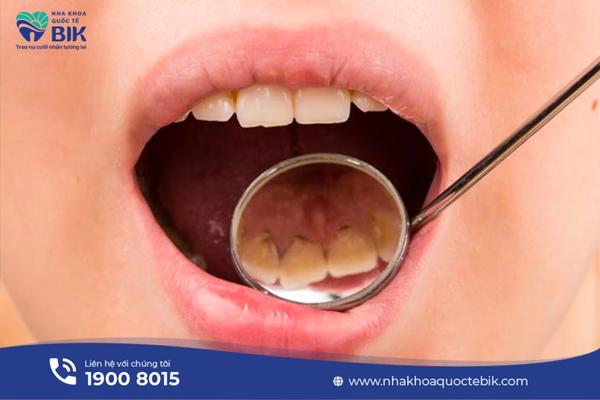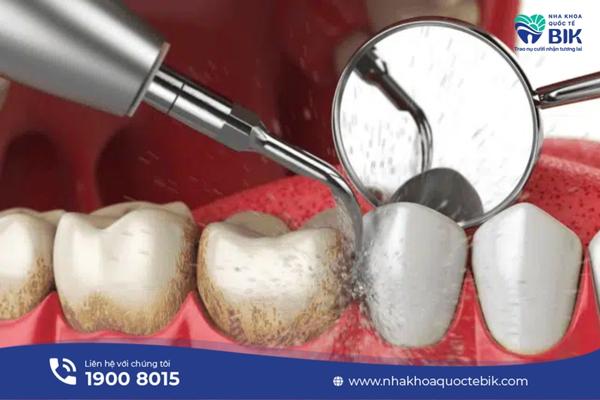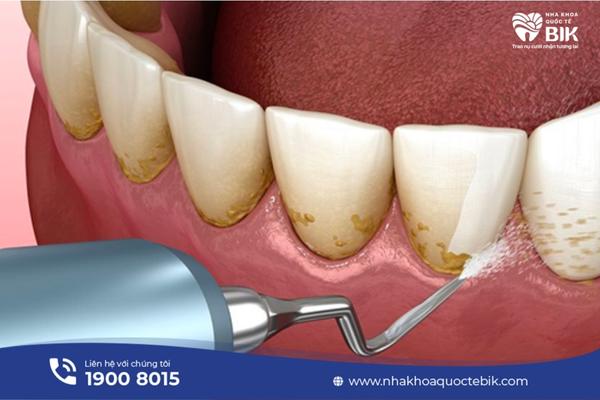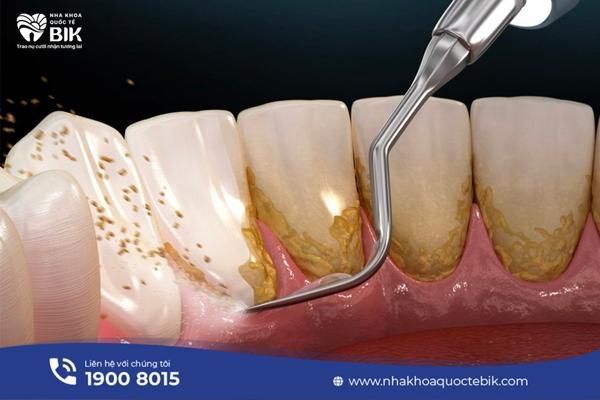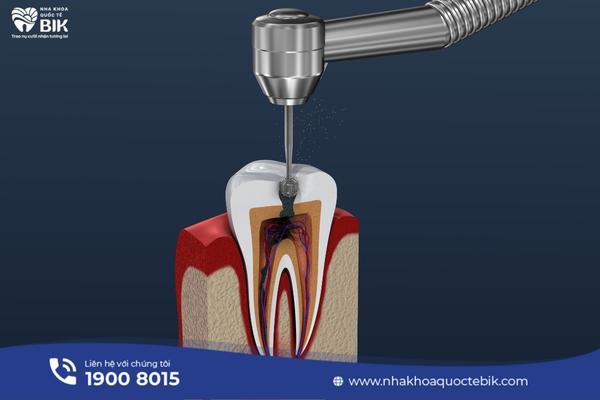
Experts recommend getting your teeth scaled every 6 or 3-4 months depending on your oral health because tartar contains many bacteria that are harmful to your oral health. Scaling not only helps to completely remove bacteria but also helps to improve the aesthetics of your smile, while eliminating bad breath.
1. What is dental scaling?
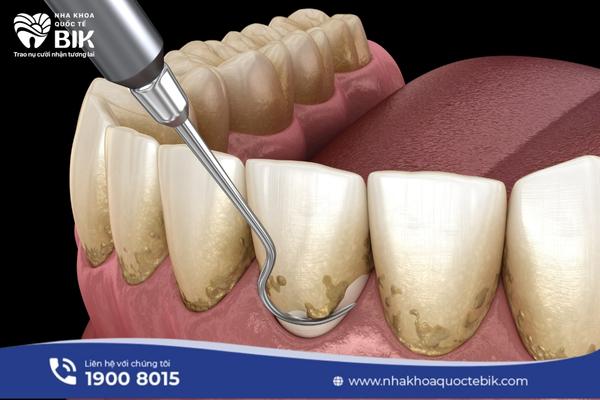
1.1. What is dental scaling?
In fact, after eating for about 15 minutes, if the mouth is not cleaned, a thin layer will form on the tooth surface. Regular brushing can hardly clean this plaque as well as food debris left in between the teeth. If plaque accumulates for too long, it will gradually turn into tartar. Tartar is often light yellow and sticks firmly to the tooth root, making it difficult to remove completely.
1.2. What is scaling?
At this time, scaling is considered a very necessary solution to remove all plaque, thereby preventing the attack of bacteria that can cause other oral diseases. Scaling at the dentist is a fairly simple technique, the doctor will use ultrasonic vibrations to make tartar fall off the tooth surface without damaging the gums or enamel.
2. Effects of tartar
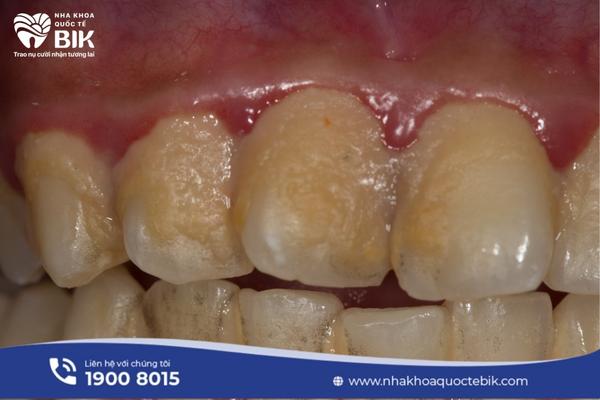
Tartar remaining in the oral cavity for too long will cause the following effects:
2.1. Causes bad breath
Because bacteria hide under tartar to grow and wait for the opportunity to attack the gums and teeth, bad breath caused by one of these bacteria is inevitable. This unpleasant odor often cannot be eliminated by just basic daily oral hygiene steps.
2.2. Causes oral diseases
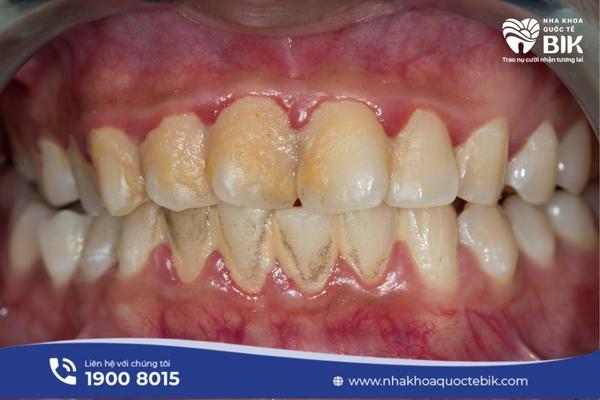
Bacteria in tartar can easily damage the teeth and gums of the patient. The mildest condition that these bacteria can cause is gingivitis and tooth decay. If gingivitis is not treated promptly, it will lead to periodontitis with symptoms such as bleeding gums, tooth sensitivity when eating and drinking…
2.3. Causes loss of aesthetics
Tartar is often light yellow in color, so it will lose the natural color of the teeth, making the patient lose confidence when smiling or communicating.
2.4. Loose teeth
In cases where the gums are strongly attacked by bacteria and damaged to a certain extent, they will no longer be able to hold the teeth, causing the teeth to become loose and even fall out.
3. Should I get my teeth cleaned regularly?
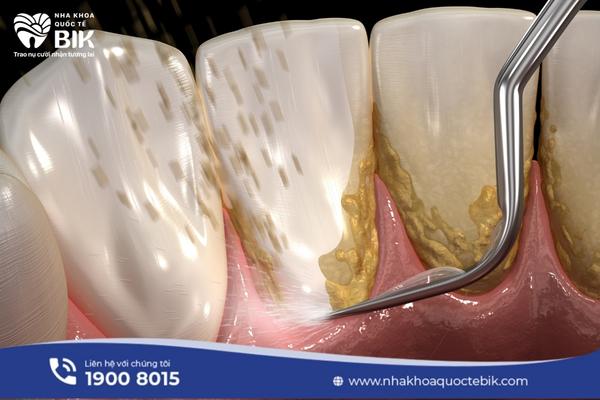
Usually, experts recommend that everyone should get their teeth cleaned every 6 months. However, depending on the condition and oral care habits, it may be necessary to remove tartar about 3-4 months once to get the following benefits:
3.1. Improve aesthetics
Removing tartar means that the plaque on the tooth surface is uneven, which helps the teeth become whiter, bringing a confident smile when communicating.
3.2. Reduce the risk of oral diseases
During the process of cleaning tartar, bacteria in tartar will also be removed, helping to prevent their attacks that cause oral diseases such as tooth decay, gingivitis, pulpitis, etc.
3.3. Eliminate bad breath
Regular scaling helps eliminate bad breath effectively because bacteria that cause unpleasant odors will be completely eliminated regularly.
3.4. Protect teeth and jawbones
Because tartar is located between the gums and the tooth root, bacteria can easily attack and destroy the structure of teeth and gums. More serious consequences can be gingivitis, receding gums, jawbone loss, loose teeth or mass tooth loss.
4. Does scaling hurt?
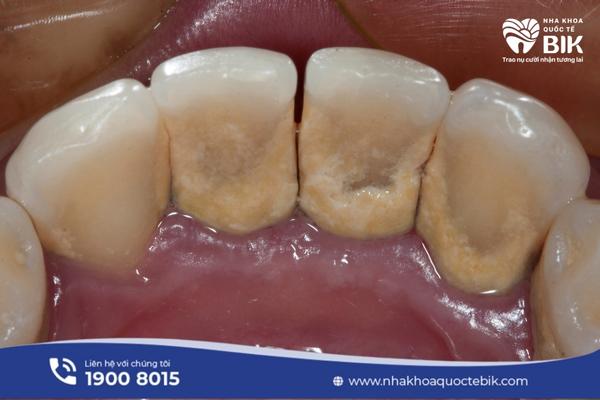
Whether scaling hurts or not depends on the following factors:
4.1. Tartar condition
The condition of tartar is the most important factor in determining whether scaling is painful or not. In case of tartar sticking firmly under the gums causing inflammation or in the case of first-time scaling, customers may feel a little pain during the procedure. However, this feeling will quickly disappear after 1-2 days and will not affect the chewing process.
4.2. Oral health
If you have oral diseases such as periodontitis, gingivitis, red and swollen gums, scaling may cause more pain than usual because the tool will have to come into contact with the damaged gums.
4.3. Doctor’s skills

Scaling is a fairly simple technique that usually does not affect enamel or gums, but requires meticulousness and gentleness in the doctor’s operations. Therefore, if performed by a doctor with many years of experience and high qualifications, scaling will not cause any pain.
4.4. Dental scaling tools
With the development of modern technology, dental scaling techniques today are performed using ultrasonic machines instead of tools with hooks at the tip. Dental scaling will be cleaned with a moderate vibration frequency so that it does not cause any damage to the gums and surrounding soft tissues.
5. How to limit tartar formation?

The following can be noted to prevent tartar formation:
5.1. Proper oral hygiene
Brush your teeth twice a day to effectively prevent tartar from forming, and you can combine it with dental floss to completely remove food particles stuck between your teeth. Be careful to choose a soft-bristled toothbrush and brush your teeth properly to avoid damaging your teeth. In addition, brushing your teeth with toothpaste containing fluoride will help your teeth become stronger.
5.2. Reasonable diet
You should build a healthy diet, avoid consuming too much sugar and starch, and supplement with lots of fiber and vitamins to help keep your teeth strong. Be careful not to eat too many dark, chewy, hard foods like gummy candies, chocolate, carbonated drinks, etc. because they will make it difficult to clean your teeth.
There are many benefits that make scaling every 6 months absolutely necessary and advisable. Although it is a fairly simple and popular technique, to avoid unnecessary damage, customers should still choose reputable and quality dental facilities.


